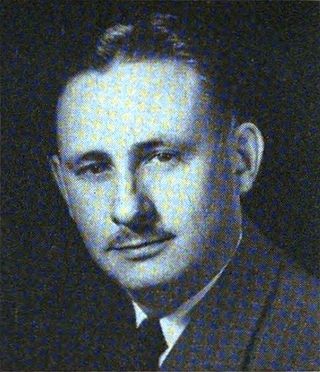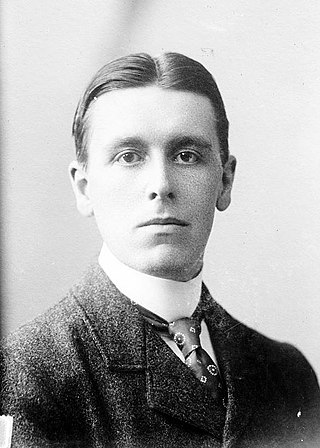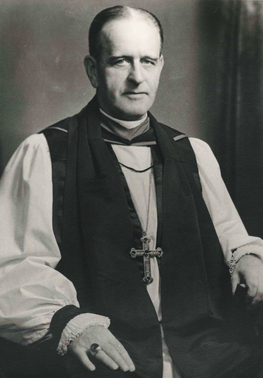Related Research Articles

James John Walker, known colloquially as Beau James, was mayor of New York City from 1926 to 1932. A flamboyant politician, he was a liberal Democrat and part of the powerful Tammany Hall machine. He was forced to resign during a corruption scandal in which he accepted large sums of money in exchange for municipal contracts.

John Francis Hylan was the 96th Mayor of New York City, from 1918 to 1925. From rural beginnings in the Catskills, Hylan eventually obtained work in Brooklyn as a laborer on the elevated railroad. During his nine years with the company, he worked his way to engineer, and also studied to earn his high school diploma. He continued by earning a law degree. He practiced law for nine years, and also participated in local Democratic politics.

Brooklyn College is a public university in Brooklyn in New York City, United States. It is part of the City University of New York system and as of 2019 enrolls over 17,000 undergraduate and over 2,800 graduate students on a 35-acre (14 ha) campus in the Midwood and Flatbush sections of Brooklyn.

Mayo Jane Methot was an American film and stage actress. She appeared in over 30 films, as well as in various Broadway productions, and attracted significant media attention for her tempestuous marriage to actor Humphrey Bogart.

Abram Stevens Hewitt was an American politician, educator, ironmaking industrialist, and lawyer who was mayor of New York City for two years from 1887 to 1888. He also twice served as a U.S. Congressman from New York's 10th and chaired the Democratic National Committee from 1876 to 1877.

Emanuel Celler was an American Democratic politician from New York who represented parts of the New York City boroughs of Brooklyn and Queens in the United States House of Representatives for nearly 50 years, from March 1923 to January 1973. He served as the dean of the United States House of Representatives from 1965 to 1973. Celler chaired the House Committee on the Judiciary for eleven terms between 1949 and 1973 and was a leading advocate for the liberalization of immigration and naturalization laws, from his early stand against the Immigration Act of 1924 to his sponsorship of the Immigration and Nationality Act of 1965. He ranks as the fifth longest-serving congressman in history and the longest-serving member of either house of Congress in New York's history.
The Hofstadter Committee, also known as the Seabury investigations, was a joint legislative committee formed by the New York State Legislature on behalf of Governor Franklin D. Roosevelt to probe into corruption in New York City, especially the magistrate's courts and police department in 1931. It led to major changes in the method of arrest, bail and litigation of suspects in New York City. It also coincided with the decline in Tammany Hall's political influence in New York State politics.

Franklin D. Roosevelt was elected governor of New York in 1928 and served from January 1, 1929, until shortly after his election as President of the United States in 1932. His term as governor provided him with a high-visibility position in which to prove himself as well as provide a major base from which to launch a bid for the presidency.

Edgar Hoffmann Trooper Price was an American writer of popular fiction for the pulp magazine marketplace. He collaborated with H. P. Lovecraft on "Through the Gates of the Silver Key".

Henry Jepson Latham was an American attorney, politician, and jurist from New York. A Republican, he served in the New York State Assembly from 1941 to 1942, the United States House of Representatives from 1945 to 1958, and as a Justice of the New York Supreme Court from 1959 to 1978.

Michael Kieran Reilly was an Irish American lawyer and Democratic politician from Fond du Lac, Wisconsin. He served six full terms and one partial term in the U.S. House of Representatives, representing Wisconsin's 6th congressional district from 1913 to 1917, and from December 1930 to January 1939. Earlier in his career, he served as district attorney of Fond du Lac County and city attorney of Fond du Lac.

Robert Lawrence Moran, was a Bronx politician who served as president of the Board of Aldermen of New York City from 1918 to 1920, filling a vacancy after Alfred E. Smith was elected Governor of New York. Nominated by the Democratic Party to succeed himself as board president, Moran faced Republican Representative Fiorello H. La Guardia in the election of 1919, losing by a plurality of 1,363 votes. Moran has the distinction of being the only citizen of The Bronx to ever exercise the authority of mayor of New York City, even though this honor came to him only in his capacity as acting mayor during Mayor Hylan's absences from the city.

The 1934 New York State Election was held on November 6, 1934, to elect the governor, the lieutenant governor, the state comptroller, the attorney general, a U.S. Senator, two U.S. Representatives-at-large, the chief judge and two associate judges of the New York Court of Appeals, as well as all members of the New York State Assembly and the New York State Senate.

Irwin Steingut was an American lawyer, businessman and politician. At the time of his death he had served as a member of the New York Assembly longer than anyone in history. Early in his career he teamed with Brooklyn boss John H. McCooey, who turned Brooklyn into a solidly Democratic power base and dominated its politics for a quarter of a century until his death in 1934. Steingut thereafter became the de facto leader of the Brooklyn Democratic Party. Throughout almost all of his legislative career Republicans held a majority in the New York Assembly, and much of that time Steingut was the Minority Leader. In 1935 for the one year the Democrats had the majority, Steingut was Speaker of the Assembly.

Samuel Seabury was an American lawyer and politician from New York. Seabury is famous for dedicating himself to a campaign against the corrupt Tammany dominance of New York City politics. He later presided over the extensive 1930–32 investigations of corruption in the New York City municipal government, which became known as the 'Seabury Hearings'. Seabury became a Georgist after reading Progress and Poverty.

John Henry Esquirol was the ninth bishop of the Episcopal Diocese of Connecticut.

The 156th New York State Legislature, consisting of the New York State Senate and the New York State Assembly, met from January 4 to October 19, 1933, during the first year of Herbert H. Lehman's governorship, in Albany.
Joseph Alfred Esquirol was an American lawyer and politician from New York.

The 1929 New York City mayoral election was held on November 5 in concert with other municipal elections. Democratic incumbent Jimmy Walker defeated Republican challenger Fiorello H. La Guardia in what was considered "a Crushing Defeat to [the] City G.O.P. [delivered]" by Tammany Hall. Socialist candidate Norman Thomas also ran, as did Socialist Labor candidate Olive M. Johnson and former Police Commissioner Richard Edward Enright for the Square Deal Party.

The New York City mayoral election of 1933 took place on November 7, 1933, in New York City. Incumbent Democratic Mayor John P. O'Brien, who was elected in a special election after the resignation of Mayor Jimmy Walker, faced Republican Congressman and 1929 mayoral candidate Fiorello La Guardia, and former acting mayor and President of the New York City Board of Aldermen Joseph V. McKee, who became acting mayor after Walker's resignation until the special election, and ran on the Recovery Party line.
References
- ↑ "William Lathrop Love" transcribed from History of Homeopathy and Its Institutions in America by William Harvey King, M.D. LL.D.
- ↑ "Love Wants Crime Treated as Disease" . The New York Times . April 2, 1929. p. 18.
- ↑ "Want Jails Replaced by Industrial Farms; Leaders of National Prison Group Start Drive to Rid State of 'Crime Schools'" . The New York Times . April 16, 1929. p. N22.
- ↑ "Seabury Vote Costs Love Renomination" . The New York Times . August 12, 1932. p. 1.
- ↑ "Democratic Sweep is Record for City" . The New York Times . November 9, 1932. p. 5.
- ↑ "Wrote Letters To Consolidated: So What?--Love". Brooklyn Daily Eagle . March 8, 1935. p. 3. Retrieved January 8, 2024– via Newspapers.com.
- ↑ "Amnesia Victim To Return Home". Richmond Times-Dispatch . December 16, 1951. p. II-1. Retrieved January 8, 2024– via Newspapers.com.
- ↑ "Is Amnesia Victim". Kingston Daily Freeman . Richmond, Virginia. AP. December 15, 1951. p. 5. Retrieved January 8, 2024– via Newspapers.com.
- ↑ Joshi, S. T.; Schultz, David E. (September 30, 2001). An H. P. Lovecraft Encyclopedia. ABC-Clio. p. 47. ISBN 9780313016820 . Retrieved January 8, 2024– via Google Books.